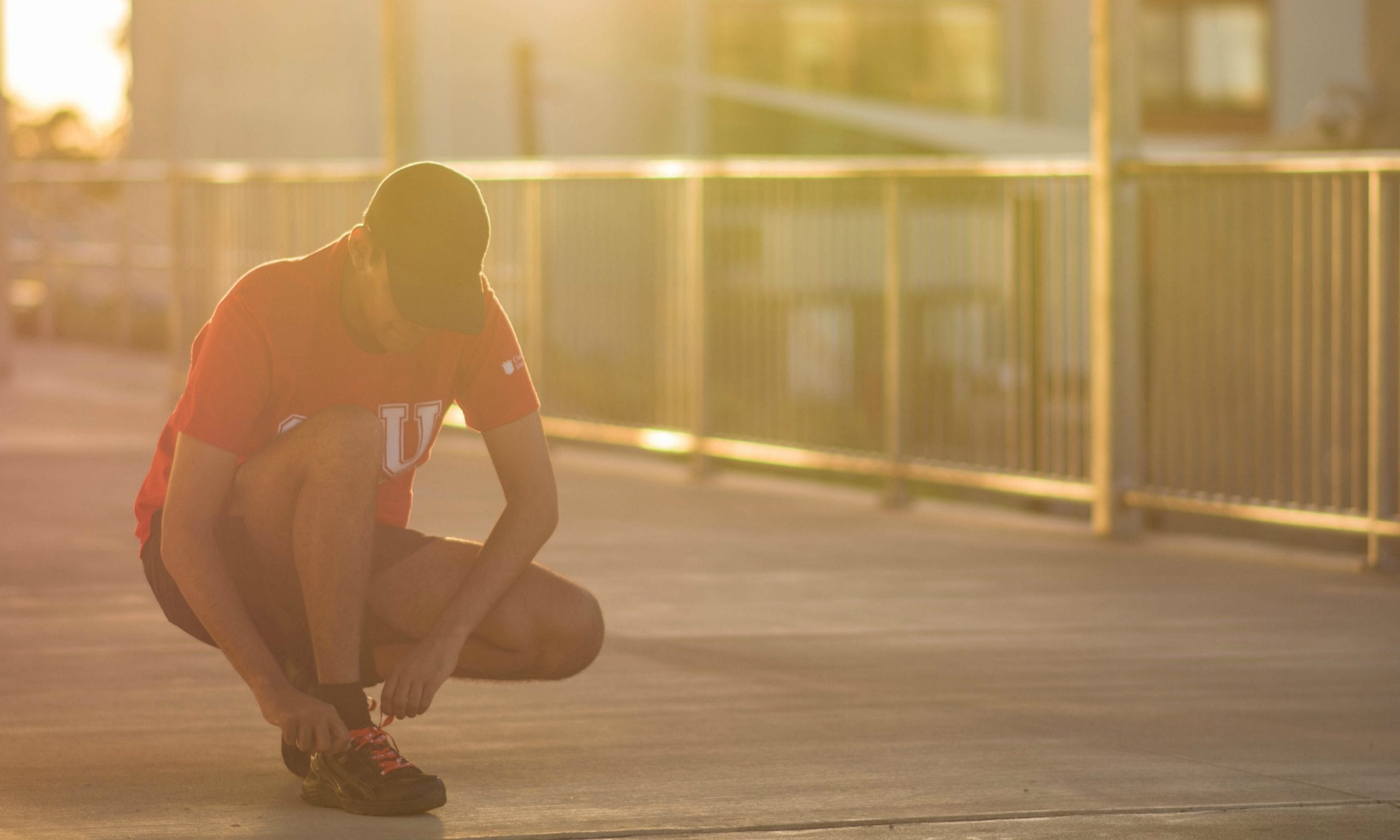This post is over three years old, the information may be outdated.
“Exercise is good for you.” “Do some exercise, you’ll feel better.”
We hear these phrases all the time, but have you ever wondered why exercise is actually so good for you? Need to know the scientific reasons why you should get off the couch before lacing up your treads or throwing on some active wear?
With the #BetterInRed challenge at CSU encouraging you to improve your health and fitness, Dr Cheyne Donges from the School of Exercise Science, Sport and Health has answered some questions about what exercise is and why we should all be doing it.
What is the definition of exercise?
Exercise is a planned, purposeful, intentional activity where you set out to engage in bodily movement to achieve a health benefit. It elevates bodily processes such as your breathing and heart rate and generally provides a workout for your muscles.
You plan to do it – saying to yourself “Two nights this week I’m going for a brisk 30 minute walk” – and that’s how it differs from general physical activity like walking 400 metres from your car to class.
So why should I be exercising regularly?
Because if you don’t use it, you’ll likely lose it.
From your late teens and early twenties your bodies start to lose muscle fibres and your overall strength declines. And it’s much worse if you don’t stimulate those muscles with an appropriate challenge regularly. So, your uni days are actually the perfect time to get your exercise habit set for life.
The ‘use it or lose it’ argument goes for not just your muscles and your skeleton, but also for nearly every cell in the body, even neurons in the brain and tiny capillaries in the bloodstream – all of which are stimulated by exercise.
Exercise also helps maintain your nervous system and brain function – and everyone can benefit from a bit of extra help at exam time!
How does exercise benefit my body?
In so many ways! But here are some of the most important ones:
- Helps you digest, absorb and utilise the food you eat
- Makes your bones stronger and more resilient to impact
- Maintains (and can improve) muscle mass
- Prevents gains in (and can help reduce) fat mass
- Improves your balance and coordination
- Preserves your body and physicality, both now and for later in life
- Preserves the health you’ve got (with the potential to improve it)
How does exercise benefit my brain and how I feel?
Immediately there are some happy hormones and other stimulating factors that come out of the muscles when we exercise – think endorphins – and these stimulate the brain.
From the research, it seems that there is something about exercise that allows people to vent their mental burdens, to put aside their worries and clear their mind, giving them an overall ‘good feeling’. Sometimes this is about the physicality and exertion of the exercise and at other times it’s about the relaxation or even just the chance to be outside.
Is there anyone who shouldn’t exercise?
In general, no. There’s a type of exercise to suit every fitness level and to overcome any excuse you’ve got. There’s always swimming or cycling if you need low-impact activities or yoga and pilates for flexibility.
The only caveat is that if it’s been a long time since you’ve exercised or you never have before, it’s a very good idea to see your doctor for a general health check before you start. As exercise provides a challenge to the body (and this is how you get fitter), it is important to ensure that your body is up for this challenge prior to getting started.
Where do I start?
If you’re new to exercise, start out slow. The most important thing is to create the habit of regular exercise. Don’t worry in your first few weeks about what you’re doing and whether it is enough, just do something. Start with 20 to 30 minutes of planned exercise every second day.
—
#BetterInRed is all about getting the most out of university life by looking after your health and wellbeing. It is an exercise challenge that will run for eight weeks from Monday 6 March.
So, lace up, get out and challenge yourself to complete 30 minutes of exercise three times per week. Share your exercise using #BetterInRed and you could win some great prizes!










